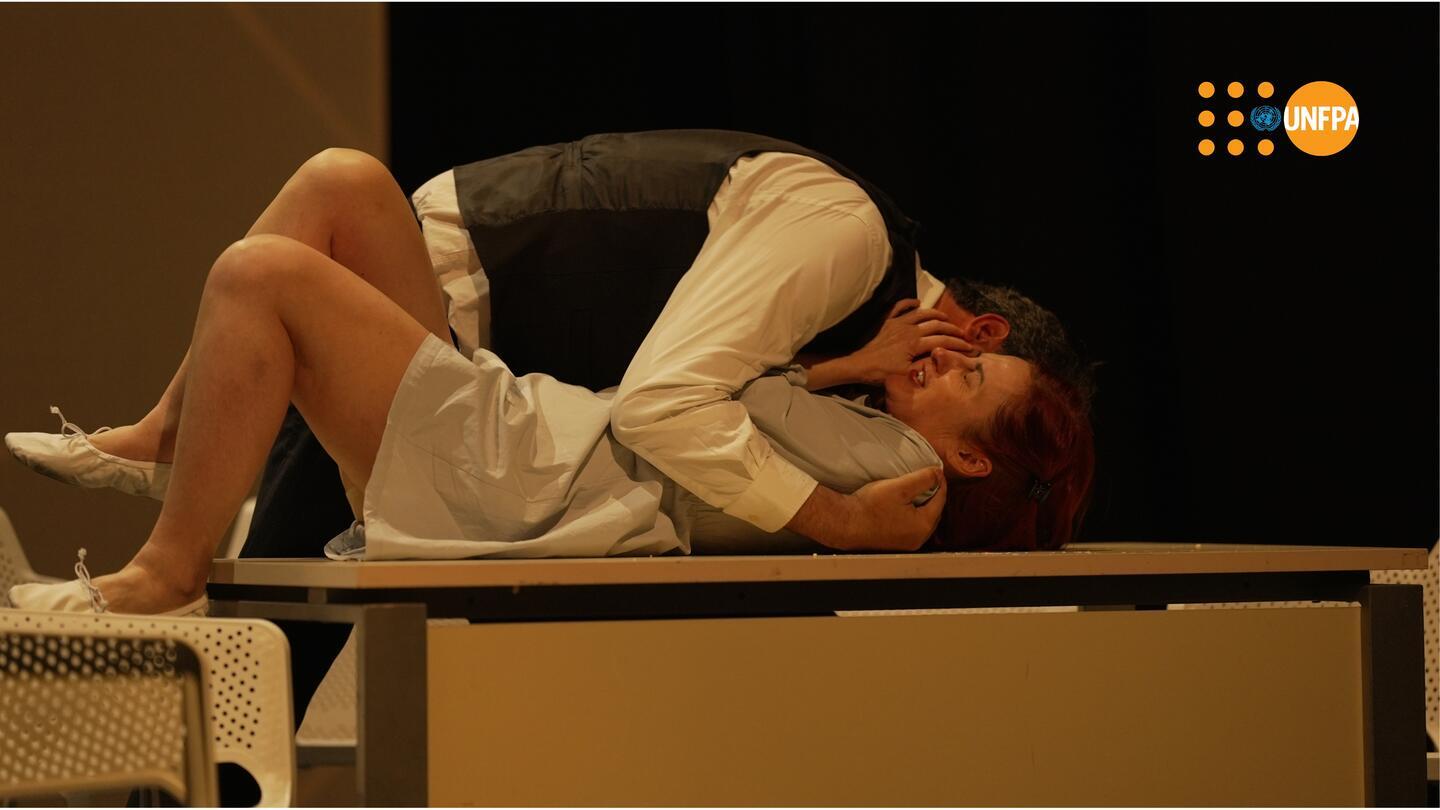The play "On the Altar," directed and dramatized by student Belkisa Zhelegu, opened its curtain at the Experimental Theater. With a special emphasis on the importance of awareness, it brings to the stage touching stories that reflect the painful reality of individuals with mental health problems as a result of facing gender-based violence. This project was realized through the collaboration between UNFPA in Albania and Youth Voice Network of Organizations, driven by the spirit to promote education and empowerment of young people through art and speech.
"On the Altar" was not merely a theatrical performance, but a presentation of bitter realities, a confrontation with inner truths, a reflection on honor, sacrifice, and voices that often remain silent, the power of authority and its abuse, inflicted violence, and triumph. Through this artistic work skillfully realized by young artists, the aim was to raise awareness and convey essential messages about these issues. With the unwavering commitment of the creative team, actors, and every participant, the play managed to create a powerful emotional atmosphere, emphasizing the importance of art as a tool to bring about social change and to understand why UNFPA in Albania and partners do not give up on fighting all forms of violence.
Director Zhelegu explains how she was inspired to write this theatrical work: "While I was writing, something very strange, almost frightening, happened to me... On the street, I encountered people suffering from mental health issues every day, and what pushed me to write this work even more was the fact that I judged them, I saw them as very dangerous people. This prejudice almost created an internal conflict within me, and in these circumstances, I think art is the best way to raise the voice and say that their problems truly need to be addressed in the best way possible."
From domestic violence and rape, to the abuse of power, the play centers on characters who suffer deep traumas. Actress Ina Gjonçi, in the role of Dija, a patient admitted to the psychiatric hospital who suffers the trauma of being raped by her father, expresses her experience after the play: "It is always our choice whether we want to stand on the side of those who perpetrate violence or remain silent, or to be on the side of those who raise their voices and say that we are responsible for every action we take."
Another actress, Adriana Tolka, in the role of Beka, portrays a patient who experienced rape by a stranger and abandonment during pregnancy, as well as sexual abuse within the psychiatric hospital itself.
According to data from the INSTAT survey on gender-based violence (GBV), 3 in 4 women (75.4%) in Albania reported domestic/marital violence, 2 in 3 (69.9%) sexual harassment, and 2 in 3 (68.4%) stalking as the biggest problems of violence in Albania.
UNFPA in Albania works closely with primary healthcare services and supports the strengthening of the capacities of the referral mechanism against gender-based violence, focusing on the health and psycho-social sectors. Additionally, UNFPA in Albaniasupports the involvement of boys and men in the fight against gender-based violence through 15 "Be a Man" clubs established in a large number of municipalities across the country.
Doctor Dea Guri, who has worked at a psychiatric hospital in Tirana, emphasizes in her impressions conveyed by "On the Altar" that timely identification and treatment of mental health illnesses and access to quality healthcare services are essential.
Based on World Health Organization data, 1 in 8 people are affected by mental health illnesses; however, in Albania, shyness and fear of prejudice often prevent people from seeking help from a specialist.
UNFPA in Albania organizes informational campaigns to raise awareness about health services and supports the efforts of institutions to improve the management and accessibility of these services, especially for persons with disabilities, those who are more vulnerable and marginalized, etc.
With a cast of actors from the Experimental Theater, Belkisa Zhelegu has succeeded in creating a work that not only entertains but also raises awareness about gender-based violence and its consequences on mental health.
This play was supported by UNFPA in Albania in the framework of the UN Joint Program “Ending Violence against Women” funded by Government of Sweden and implemented by UNDP, UN Women and UNFPA in partnership with Albanian Government.


